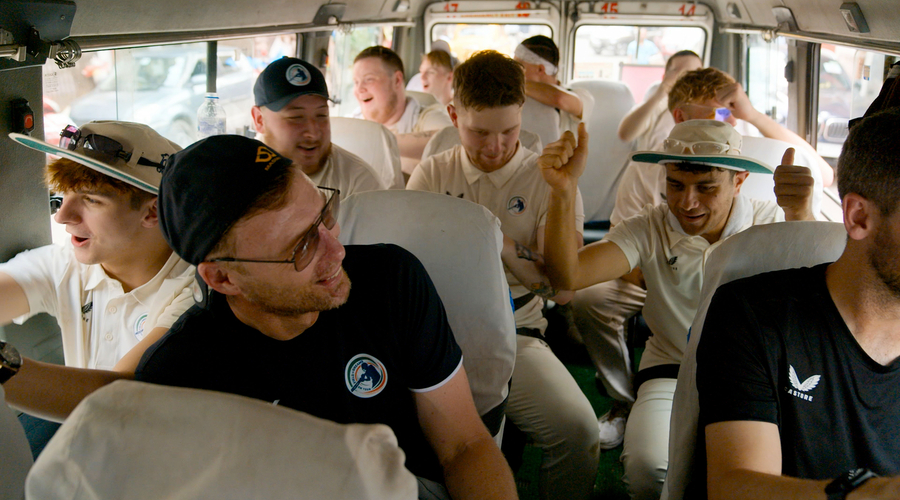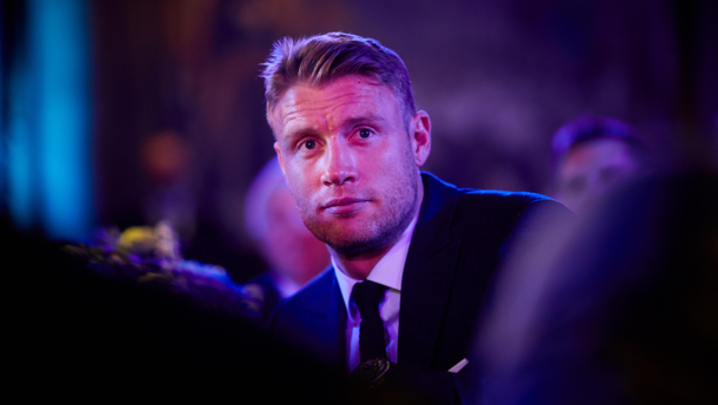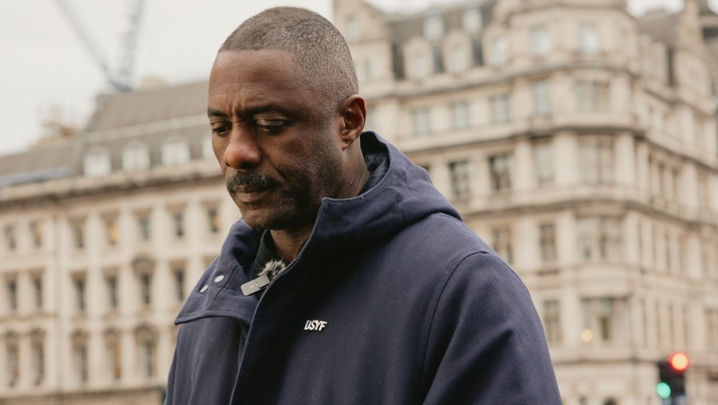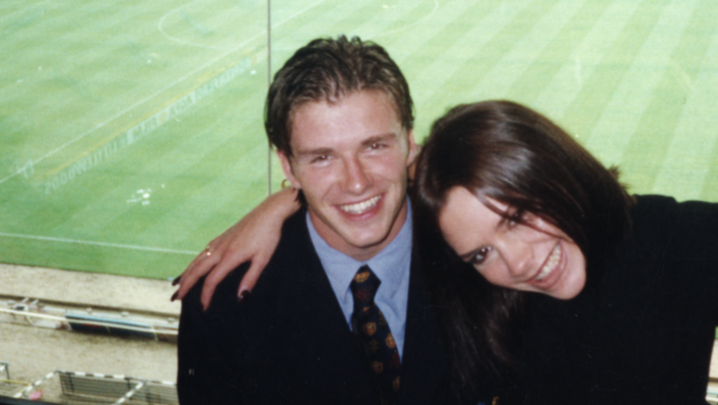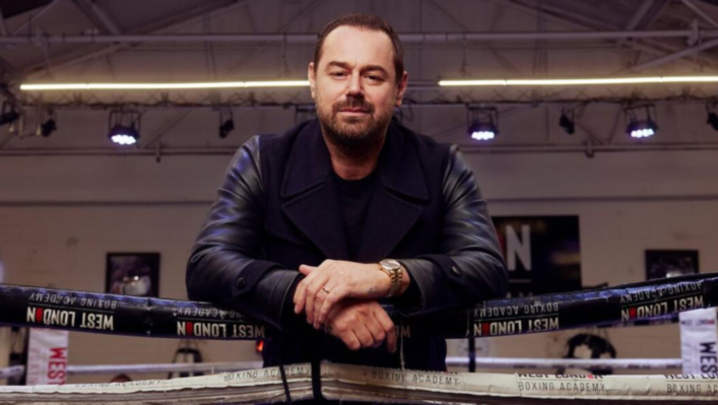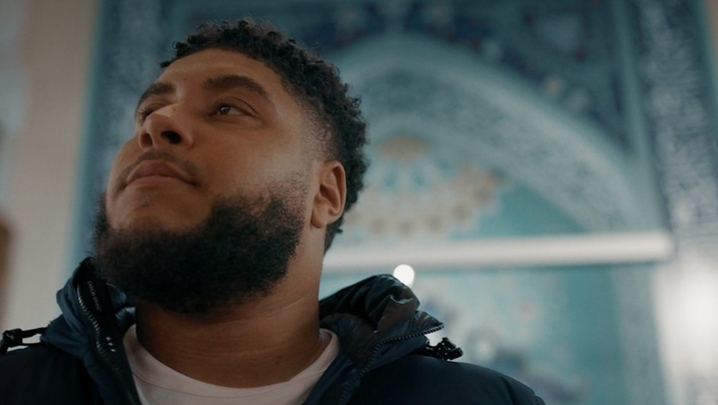Is there a more uplifting series on TV than Freddie Flintoff’s Field of Dreams?
At a time of declining social mobility, especially for young people, watching Freddie Flintoff manage a cricket team made up entirely of working class boys from Preston still hits like a ray of hope.
By smashing the class ceiling of such an elitist sport, the former England captain is steadily teaching the boys to dream of better futures for themselves, and the rest of us the transformative power of some gentle encouragement.
This kind of talk makes the series sound a little preachy when it’s anything but. Director Jonny Ashton says the production team deliberately narrow their creative focus. “When you're making a programme like this, I don't think you can ever be thinking about a message as big as that. It was all about the boys and concentrating on their stories.”
When the first series landed, it wasn’t long before millions of viewers were rooting for him and his team. So they raised the bar for the second, setting out to broaden the boys’ horizons far beyond their Lancashire boundary. Flintoff took the lads on tour to India, where cricket isn’t just the domain of the upper crust, but a way of life for the entire country.
“We talked a lot about The Up Series,” he says, referring to Michael Apted’s intimate, if highly ambitious, series of films that revisited the same group of boys and girls every seven years, from 1964 right through to 2019.
“There aren’t many series where it’s longitudinal and you get to know a group of young people and catch up with them a few years later. People obviously invest in the characters, so we were very conscious of the fact that people would be really interested to see where their lives were at now.”
This obviously goes for all the boys, but there were some big characters from the first series who viewers would have been particularly keen to check in on. Sean, who had been expelled from several schools by the time of filming, spent most of the series acting up and even managed to fall out with Flintoff. Ben was unemployed, formerly homeless and had been living with depression in supported accommodation. But both of them had shown glimmers of redemption on and off the pitch.
Altogether the boys seemed to represent a lot of working class young people who, for lack of an ounce of positive attention, often slip through the cracks.
People also welcomed Flintoff's brave return to screens. In December of 2022, Flintoff was driving a Morgan Super 3 trike while filming a segment for Top Gear, only for the vehicle to flip while turning a corner. He sustained serious injuries, suffering broken ribs and facial damage, and largely disappeared from public life.
Production for Field of Dreams was delayed for a year. “It was just a case of Freddie having as much recovery time as he needed,” says Ashton.
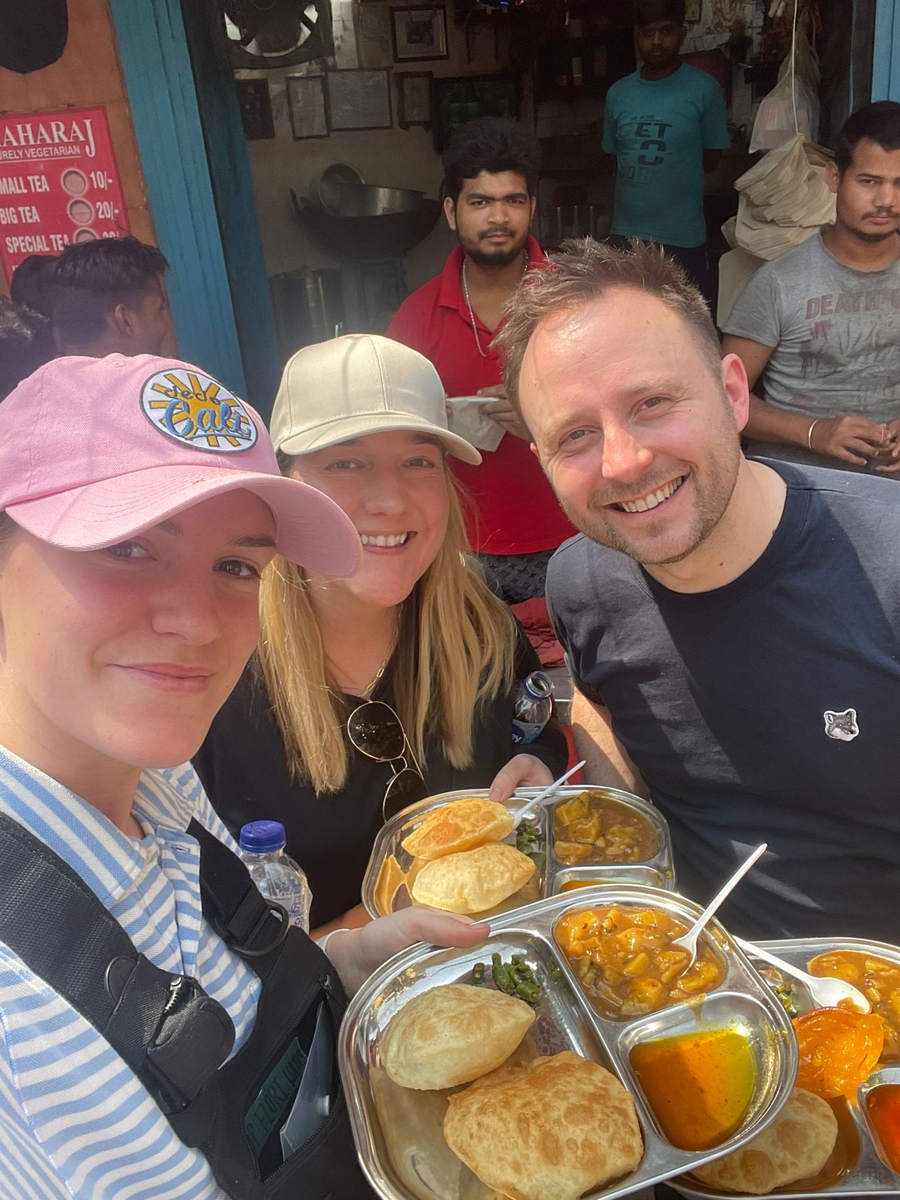
Senior Producer Catherine Miller and Ashton
When filming finally started up again, Flintoff’s reunion with the boys at the clubhouse was the first scene they shot. “That was really special,” he says.
Knowing how significant the moment was, Ashton was nervous, and tried plotting the scene out with his camera team, two of whom he’d never worked with before. But “it all completely changed in the moment,” he says. “Freddie just walked straight into the group and stood somewhere completely different [to where we were expecting], so we just filmed it for real, and actually multi-cam directed among ourselves.”
The result is one of the most moving scenes you’ll see on TV this year. The boys welcome him back with open arms, and it’s not long before he’s dishing out the witty one-liners we’ve come to expect from the former A League of Their Own panellist. But it’s clear that this isn’t the same easy-going Freddie of the first series, and after all the banter, Finn tentatively asks him, “you feeling, like, 100% though?”
“Not really,” he replies, “I don’t know if I will again, to be honest.”
“It was really clear how much Freddie cared for the boys, but equally in that moment how much the boys cared about Freddie,” says Ashton. He points out that in his interview, Sean echoed Kyle’s earlier line that “he was there for us, we’ve now got to be there for him.”
They finally went to Kolkata, India in March 2024, and they were there for an intense three weeks of shooting. The delay in production meant they had to carry out a second recce, primarily to check nothing had changed from the year before, but it allowed them to find alternative stories, characters and places. “It really helped that, by the time we shot, we knew the city really well. And also, I want to praise our fixers, Reshma Saira H and her team, who were really amazing at finding locations.”
All this planning belies the genuine sense of discovery you get while watching the series. Judging solely by the boys’ first reactions – most of whom had never been abroad before – Kolkata is a sensory overload of a city, home to 15 million people, a lot of wandering cows and incessantly beeping car horns.
To immerse viewers in the chaos, Ashton and his team used a mixture of prime and zoom lenses, often filming with wide angle primes but physically close to the boys.
It means that when they’re out exploring the city, you’re right there with them when anything can happen. At one point they stumble upon their next opponent playing gully cricket in some nondescript back alley (no matter how inconveniently narrow it was for Ashton and his cameras to cover).

Ashton says they had some story arcs in mind. They knew that Ben was unemployed and still in supported accommodation, for example, so they were hoping the trip would give him a sense of direction. When the team visit an Indian orphanage, and Ben teaches a class before giving a rousing speech to the whole school, he does seem to start considering a career in education.
But “we weren’t actively looking for drama,” he says, contrasting Field of Dreams with the kind of shock therapy TV shows that plonk troubled teens in prisons for a few days. Beyond scouting locations, they stuck to a principal of minimal intervention, so their approach had to be twofold. “If you go out without a plan,” he says, “you can end up a bit aimless, but you also have to be reactive in the moment.”
This is especially true when documenting the unpredictable behaviour of a bunch of boisterous lads-on-tour. Episode three saw them fail, once again, to turn up for breakfast at the insufferable hour of… 8.00am. Bar the responsible Finn, who resorts to knocking on all their doors and organising a group apology for Flintoff, who hadn’t exactly hidden his disappointment.
For anyone who senses the invisible hand of a producer, Ashton assures me that “it wasn't someone from production going around and knocking on doors to get people up.”
He actually sees a virtue in “letting young people do their thing.”
“Sometimes when people make TV, they try and predict what young people want or what they do. That's where it can feel a bit a bit dated, because they are thinking back to what they did 10 or 20 years earlier.”
He points to the scene where the boys are tasked with buying custom suits to wear to their formal dinner with the UK’s Indian ambassador. “We definitely didn't predict that they'd pick such wacky patterns,” he says. The boys surprised them by establishing a rule that once one of them had 'locked in' a material, it was theirs and theirs alone.
Summarising his filmmaking philosophy, Ashton says that “when filming with people who haven’t been filmed much before, it’s our job to make them come across on camera just as they are off camera.” And this is as much about “building relationships when the camera is down.”
It helps when this gentle approach behind the camera is personified by the presenter in front. The uplifting effect of Freddie’s straight-talking wisdom on the boys, especially after a one-to-one chat, is visible. As Ashton says, “a lot of the audience probably think, ‘God what I’d give to have an inspirational speech from Freddie.’”
And therein lies the heart of the show. Ashton says he “initially resisted doing stuff with talent,” but it’s shows like Field of Dreams that have taught him their potential to “highlight a message” for “a wider audience.”
It could have been a quirky, slice-of-life obs-doc about a smalltown cricket team. Instead, “it shows the power of investing in young people,” says Ashton, and to a primetime audience, no less. “It’s having that life beyond school that allows young people to develop.”
You don’t necessarily have to throw a lad from Preston into the beeping heart of Kolkota. Give them the captain’s armband for a game or hand over a class to teach, and watch them grow.
Freddie Flintoff's Field of Dreams On Tour is available now on BBC iPlayer, and has recently been recommissioned for a third series.

